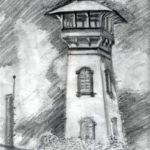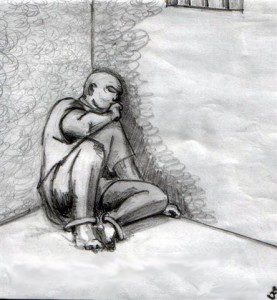
Luna-Rose Prisoner Support
Luna-Rose Prisoner Support is a non-profit organization bringing critical humanitarian support to Canadians, Americans, Europeans, Asians and other foreign national prisoners in Bangkok, Thailand’s prisons.
The Prisons

Many foreigners (Canadians, Americans, etc. ) in Thailand’s prisons are incarcerated for drug offences, often serving sentences of 25 years or more, life sentences or the death penalty. Bang Kwang Central Prison houses approximately 7000 inmates and Klong Prem Men’s Prison has an inmate population also of about 7000 inmates, each with a significant population of foreigners.
Bang Kwang Central, Klong Prem, & Bangkok Remand
Bang Kwang Prison is known by the Thais as ‘The Big Tiger’ for its ability to eat men alive, and both prisons have been referred to in books and Western media as “The Bangkok Hilton.” Newspapers, internet and cell phones are forbidden; only snail mail is allowed between inmates and the outside world.
Photographs of inmates are not allowed; it is also forbidden to take a picture of the outside of these prisons, or to bring any type of recording device into the prison visiting area, all measures designed to keep this population invisible, absent, at some level, from the mind and consciousness of the public. Meanwhile, these institutions have historically not been designed for human dignity or rehabilitation; rather, only to support bare existence and punishment.
Food and all necessities must be purchased by the prisoner. There is a great disparity in the quality of life between prisoners who get emotional and financial support from their families and friends, and those who don’t.
“Nobody help me. Nobody help me. Sometimes, I’m sorry, when you go to the toilet at night, come back you don’t have a space to sleep. And food, is not enough at all. And everything you should buy yourself!” -Afghan inmate.
In addition to the psychosocial support and medical advocacy, up until 2012, I brought bags of toiletries, medicine, clothes, food and books to inmates. This is no longer permitted, although food and some basic toiletry items can be purchased by a visitor at the prison shop for an inmate.
The prisoners are locked in their crowded cells from 3 pm until the following morning, every day. Harder than the harsh physical conditions, say the prisoners, is the struggle against boredom, with nothing provided to occupy the inmate’s emotional, physical or spiritual needs during the interminably long hours.
 Many of the prisoners fight against depression, despair and hopelessness, in addition to the acute loneliness of being so far from family, friends and home country. Serving sentences of 20, 50, life and death penalty sentences inBang Kwang and Klong Prem take a heavy psychological, physical and mental toll on the inmates. Thailand’s own studies of prison populations cite very high rates of mental illness (60 – 70%) and suicidality (10%) among inmates. Human rights groups have cited Bangkwang for its severe overcrowding, use of leg restraints, inadequate sanitation and medical care, in violation of international minimum standards of prisoner treatment.
Many of the prisoners fight against depression, despair and hopelessness, in addition to the acute loneliness of being so far from family, friends and home country. Serving sentences of 20, 50, life and death penalty sentences inBang Kwang and Klong Prem take a heavy psychological, physical and mental toll on the inmates. Thailand’s own studies of prison populations cite very high rates of mental illness (60 – 70%) and suicidality (10%) among inmates. Human rights groups have cited Bangkwang for its severe overcrowding, use of leg restraints, inadequate sanitation and medical care, in violation of international minimum standards of prisoner treatment.
HEALTH RISKS: The biggest danger from the overcrowding and lack of sanitation is the disease. Dengue, TB, all manner of viral and bacterial infections, such as amoebic dysentery and meningitis, necrotizing fasciitis (flesh-eating disease) routinely spread through the prisons rapidly. The men sleep ion the ground in large numbers per cell, and re-infect each other with all disease. It is a fight to get any medical attention, and most illness is untreated, leaving men to suffer the effects of cancers and other disease without treatment. It is a daily struggle for the men to keep their physical and mental health resilient in these extremely impoverished conditions.
“I see a lot of people who are losing their minds. I see men turn into zombies, literally tuning out and existing in a numb-state. It is a struggle to stay sane here.” – Canadian inmate